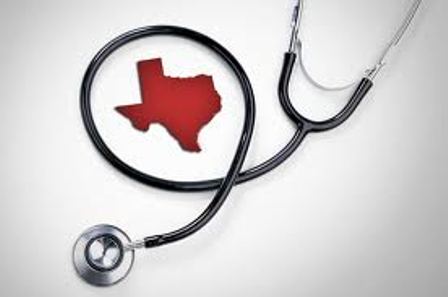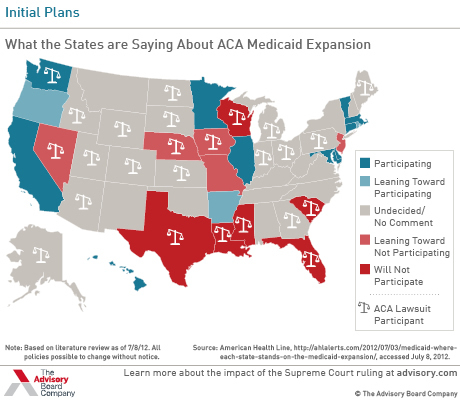Mark Obenshain on “the so-called living wage”
Back on May 7, 2006, State Sen. Mark Obenshain (R-Harrisonburg) published a Commentary piece in the Richmond Times Dispatch on the evils of the living wage. Obenshain has not authored many published articles, and this short piece provides a glimpse into his likely thinking should he occupy the Commonwealth’s Attorney General’s office, now inhabited by Ken Cuccinelli II.

Obenshain
The topic of the living wage arose because some University of Virginia students had demonstrated in favor of the university’s placing a floor under what it pays staff who clean the restrooms and maintain the grounds, etc., for Thomas Jefferson’s beloved brainchild.

University of Virginia rotunda
Obenshain calls it a “so-called living wage policy.”

Signs of the times
Obenshain titled his commentary “A Teachable Moment?; UVa’s Casteen Could Have Taught Lesson in Econ 101.” While some people might think it commendable that the students cared about someone other than self, Obenshain, au contraire, is cool with their being jailed:
“For four days in April, UVa president John Casteen was the target of a ’60s style sit-in protest by students agitating for the university to adopt a so-called living-wage policy. After trying to talk, cajole, and even starve the students out of his office, Casteen finally called the cops. UVa police ultimately hauled the protesters away and gave them the opportunity to finish their protest at the Charlottesville-Albemarle Regional Jail.”
If anything, Obenshain seems to have favored a sterner response, although he does not say what. (“As it turns out, Casteen just wanted his office back.”)
“Here is what the protesters want at UVa: They want the university to raise the minimum wage it pays its employees to $10.72. Moreover, the protesters want the university to quit doing business with any private enterprise that refuses to adopt the same minimum hourly wage.”
Imagine the effrontery. Some students on Jefferson’s historic grounds actually wanted the university to adopt a policy of paying $10.72 per hour to employees who bag up and cart away used tampons or clean up the school’s cafeterias and other eating places.
As Obenshain points out, “Right now, unemployment in the Charlottesville-Albemarle region is about 2.1 percent.” His take-away? ” There is absolutely no indication that the university is unable to hire qualified people for jobs classified at the bottom of its pay scale.” In other words, the standard CEO-type argument for paying more–that higher pay is needed to attract job candidates–cannot be made.
That argument absent, in this mindset there is no argument for improving the pay of those at the bottom:
“The bottom of the UVa pay scale is already $9.37 per hour–81 percent higher than the federal minimum wage and nearly 40 percent above the state’s minimum hiring rate!”
Today, caviar; tomorrow, the world!
It would be nice to hear Obenshain–or Gov. Robert F. McDonnell, or now-Attorney General Cuccinelli–say this kind of thing about CEO pay.
But this kind of justification is precisely what is not offered about CEO pay, in the public discourse–that it’s already higher than the minimum amount paid to other CEO’s, that it could be lower, etc. They just don’t go that way. They just don’t say, never get around to saying, “Hey, it could be lower, you know.”
The mindset displayed in Obenshain’s commentary is more recognizable. When confronted by something you dislike, such as the proposition that people doing the dirtiest jobs should be paid a little better, always make a threat:
“Some of those employees recognize that if the university’s minimum hourly rate of pay goes up, the university will have a choice–employ fewer employees or raise tuition. A victory by the living-wage campaign could mean no wage for an unlucky few.”
Let’s hope the author did not do himself justice.
Here’s where he spent more ink:
“Capitulation to the protesters’ demands also would have a tremendous impact in the private sector. Many businesses competing with UVa in the limited labor market immediately would have to pay more to attract and retain qualified help. “
–And by paying more, we mean what, exactly?
“A UVa business partner might be required to raise its entry-level pay from $6, $7, or $8 per hour to $10.72 per hour.” [emphasis added]
That way catastrophe lies. As ever in this kind of thinking, consequences run the short gamut from dominoes falling to apocalypse now:
“That business would have to charge the university more for goods and services because of the increased labor cost” [no evidence]
One thing leads to another:
“–which the university undoubtedly would pass on to students or to taxpayers.” [no evidence]
And on:
“That business might even flounder and fail because competitors that are not UVa business partners would have lower labor costs.”
I always like that one–the argument that the only way a business can stay afloat is by underpaying its employees, or at least the ones at the bottom.
Imagine: a business failing because it could not pay its employees the going or market rate. So much for ‘responsibility’. Incidentally, when was the last time that happened?
Polonius economics. As follows the night the day, we proceed to the inevitable billboard mantra:
“The bottom line is that the market, not the state, is best equipped to set wages. This is simple economics.”
Ah, back from the brink.
The simple economics here are pretty clear–the piece boils down to a Send-Me-Money message, from a state senator to businesses averse to the minimum wage.
Less clear is why this mindset would be good for the Attorney General’s office. You can offer a lot of criticisms of the state administration of Gov. McDonnell, but you cannot convincingly accuse him, or Cuccinelli, of being insufficiently friendly to business.




